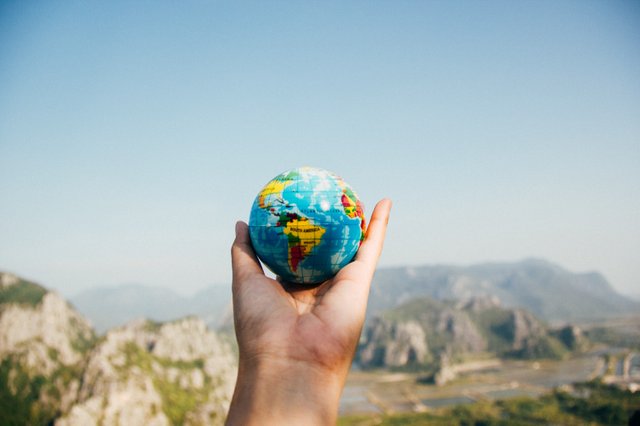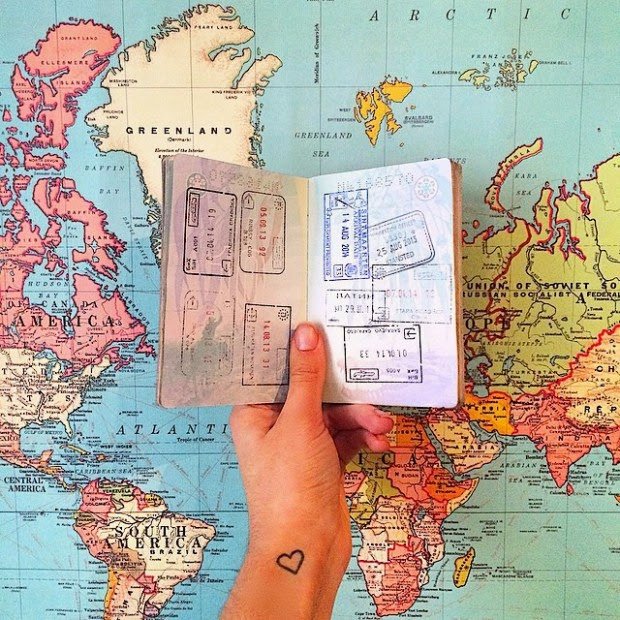The science that explains why we love to fly abroad
The science that explains why we love to fly abroad

Our love of hiking is an intuitive fact, until it seems almost ridiculous to explore it. Nevertheless, Dutch scientists have initiated research and proved that hikes make us happy. Their study encompassed about 1,500 people, and his conclusions were that a holiday leave was associated with a significant increase in happiness. Moreover, the very planning of the vacation increased the happiness of the interrogees.
On the face of it, this information seems casual. After all, why investigate a phenomenon as clear as the sun? But when we dig deeper into ourselves, the hidden psychological mechanisms that drive us, often without our being aware of them, love for walks provides fascinating and surprising insights. The interesting question, therefore, is why we like to travel to new places? What about going on a trip, and especially abroad, makes us happy and happy?
Tours encourage creativity
It is possible to extract from the hip some obvious answers: new experiences, beautiful landscapes, a break from work, a change of atmosphere and a sense of freedom. But what is the mechanism behind these feelings? What link between the brain activity that causes happiness and all these experiences?
You have to poke a little inside your head to find out what exactly the impact of hikes on our brain. An article in the Atlantic magazine says that neurologists and psychologists have begun to examine in depth the relationship between staying in new places and mental changes in those staying. It turns out that one of the changes is increased creativity. Our brain reacts to changes: each time we learn something new the brain enters into action and thickens its neuron array. This process produces more and more neural connections, which makes the flow of information in the brain into a neuronal autostrada - in other words, flexible thinking: "New sounds, smells, language, tastes, sensations and sights light up different synapses in the brain and may have the potential to breathe new life into the brain "He said.
Professor Adam Galinsky of the Columbia University School of Business adds that "foreign experiences increase both the cognitive flexibility and the depth and the intellectuality of thought, the ability to make deep connections between different patterns." In other words, when we reach a new place, our brain enters an accelerated process of processing information, which increases creativity and stimulates thought. Psychological studies provide a wealth of evidence for the link between creativity and happiness, so exposure to new experiences inspires creativity, which ultimately leads to happiness.
One person who chose to make the most of the hiking experience was Yedidia Jenkins, who set out on a bicycle trip from Oregon in North America to Patagonia on the southernmost tip of the South American continent. When asked what drove him on the adventure, he replied: "Routine is the enemy of time, it makes him fly, and when you are a child, everything is amazing and new, so your mind is awake, every second the brain learns something new, learns how the world works ... Your understanding of the patterns in which the world works ... Once the mind is accustomed to routine, the alertness disappears, the curiosity about how the world works, and I think that's what trips do, they stimulate the brain. "
Strengthening identity alongside trust in the human race
But that's not all.
Another mental phenomenon that arises from trips is the reinforcement of our self-identity. When we come into contact with different cultures and customs, our sense of self is strengthened. "The ability to come in contact with people of different backgrounds and our ability to get out of our social comfort zone helps us build a strong sense of self-identity and culture," said Professor Mary Helen Imordino-Young of the University of Southern California. It seems that the inner dialogue - or the reflection we make in light of new circumstances - allows us to re-evaluate ourselves, an examination of the existing versus the new, and making changes and adjustments.
If this means that we become more "confrontational" in encountering new cultures, this is not the case. Professor Galinsky says that alongside self-reinforcement, staying in different people, places and cultures helps remove barriers and increase trust in the human race, no less. "We found that when people traveled to other countries, it increased their so-called general trust, or general belief, in humanity," says Galinsky. This is due to the fact that on trips abroad, "we go through experiences with different people and recognize that most people treat us in similar ways. This produces amplification in trust. "
Walter Chang wrote an article on the medium blog after a three-year journey around the world, showing from his personal experience the parallel contribution of trips to building personal identity and strengthening the connection to humanity. "Trips are necessary because their core is a reality check for those who go out for a walk and for those who accept the travelers, you can see others through different eyes, and the receiving side can see you with new eyes as well. The horizons. "
The encounter with new cultures plays on two important aspects of happiness - strengthening personal identity and strengthening human experience. These are two complementary components in our consciousness that are answered in the same package, and therefore have a very positive impact on the experience of the trip and the feelings that accompany it.
One of the dominant motifs that recur in psychological and neurological studies is novelty. The enjoyment of the trip stems, directly or indirectly, from the novelty element. An article on CNN links the fun effect of hiking to the practice of Mindfulness - a practice that emphasizes, among other things, a distinction in new details. Professor Alan Langer of Harvard University says that "part of the essence of Mindfulness is to notice new things." Indeed, the same benefits of relaxation, dives, and mental refreshment are common to both walks and meditation.
Acquiring new experiences brings lasting happiness to the long term
The happiness that comes from trips also has an economic aspect. According to Thomas Jilowitz, a professor of psychology at Cornell University. In his study he found that acquiring experiences "provides more durable happiness", which results from anticipation. Acquiring experiences and experiences such as trips, shows or films create a positive expectation, as opposed to the purchase of material goods, which may involve impatience. "You can think about waiting for a vacation ... and how much it feels different ... from a two-day visit to Amazon that does not go fast enough," Amit Komar, a research partner, explains. This study states that trips create a sense of happiness before we set out. The experience of traveling abroad is so strong, for the reasons listed above, that it is enough to expect a trip to make us happier in the long run.
All the evidence points to a major accomplice to the crime - human curiosity. It leads us to ask questions about ourselves and the environment, and when we are satisfied with the level of knowledge we have achieved in the immediate area, we have a cognitive appetite that pushes us to break new boundaries. It seems that the expansion of our geographical scope also involves a broadening of consciousness - and there, in this mental growth, the sense of pleasure and happiness is embodied.
The message of Yedidia Jenkins, the retired cyclist to cross two continents, is about time and the way we pass it - and perhaps it should be dealt with because it touches on the most fundamental foundation of our existence. As her friends claim, the trips return to the brain the animals that were in it during childhood, the one that in adulthood has to re-initiate. This alertness of the brain makes us feel young again, thereby prolonging the perceived time of the experience. "I want to choose an alert mind and mind, because in a way it turns your hundred years on this planet into a thousand," says Jenkins. The walks, then, allow us to stretch the experience of life and are our little victory, humans, in the face of time.
